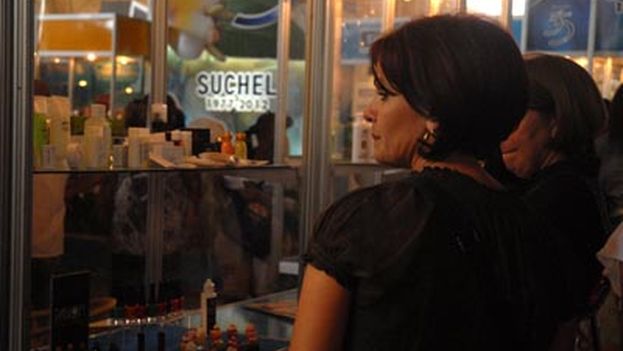
14ymedio, Rosa Lopez, Havana, 29 August 2014 — Just outside the Tienda Ultra (Ultra Store), an illegal seller advertises deodorants and colognes. It is precisely in August, this terribly hot month, when the shortage of hygiene products aggravates the bad odors and other annoyances. The problem has made the pages of the official newspaper Granma, which this Thursday published a story looking for answers to the lack of soap, cologne, toilet paper and deodorant. The text reveals the tortuous and inefficient ways of Cuban centralization.
The director general of the Cuban company Union Suchel said that “funding cuts” have limited purchases of raw materials. The statement of this official contrasts with the monopoly status of this well-known industry. Suchel has reigned for decades in the domestic market, given the absence of competitors to push down prices, diversify the product line and improve the quality of the offerings. Instead, the perfume, talcum powder and detergent giant has taken advantage of the privilege of being a State-majority consortium with zigzagging foreign capital.
For 2104, Suchel developed a “reduced production plan” due to the financial problems facing the entity. Even so, the volumes coming out of its factories point to mammoth nature of the company still so influential in its decline. Deliveries for this year in the unrationed market should reach 17 thousand tons of laundry soap, 17.9 thousand tons of hand soap, and 9.6 thousand tons of liquid detergent. Packing, transporting and distributing such quantities has become a real headache, especially in a country where corruption and the diversion of resources act as leaks, sucking dry the sources of products and services.
The position of guard in one of the many company plants trades on the black market for more than 5,000 Cuban convertible pesos
Suchel is undermined by the theft and embezzlement, an issue not addressed by the article published in Granma. The position of guard in one of the many company plants trades on the black market for five thousand Cuban convertible pesos. Working in one of those jobs guarantees the fortunate employee “under the table” earnings that exceed in three days what a doctor earns in a month.
The work of the guard consists of simply looking away, to allow the majority of the merchandise slip away, unregistered in the accounts. These undeclared goods are sold in the State’s own “hard currency collection stores” (as they’re called). The profit is distributed among the managers, drivers and the industry’s own security guards.
In the absence of a free market to test the efficiency of Suchel in competitive circumstances, the monopoly will continue to impose prices, quality standards and high costs, as well as to cause chronic supply problems.
